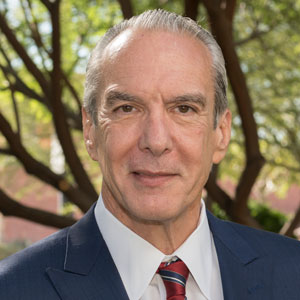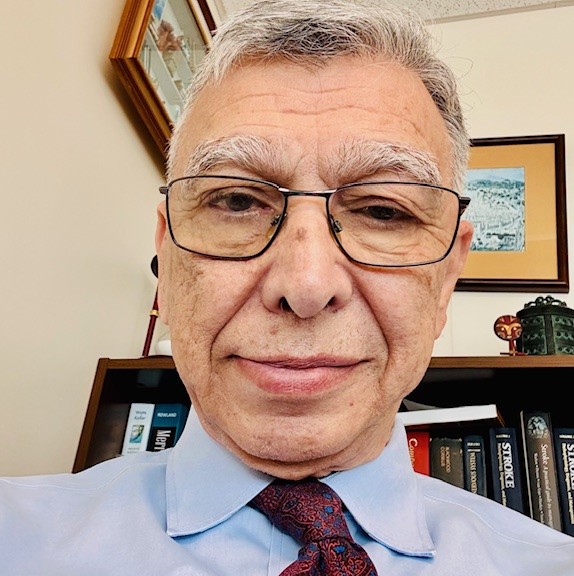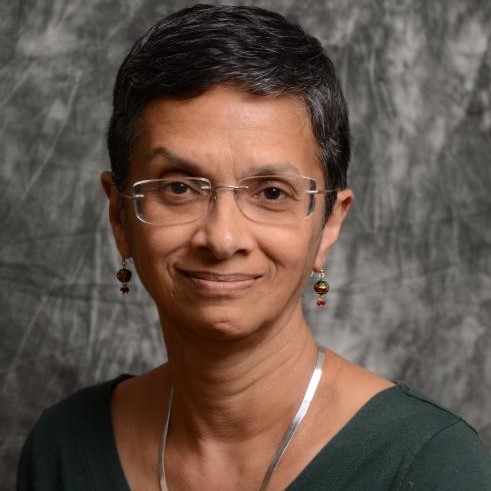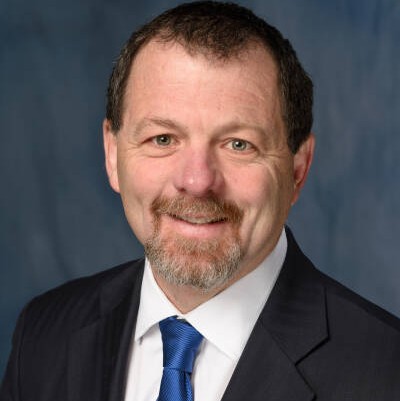2025 Alzheimer’s Public Educational Forum
THE ANNUAL ALZHEIMER’S PUBLIC EDUCATIONAL FORUM
Friday, May 2, 2025 (9:30 am – 1:35 pm US Eastern Time)
The event was free-for-all and was held online via Zoom.
2025 Alzheimer’s Disease Public Educational Forum
CHAIR:
Ranjan Duara, MD, FAAN, Mount Sinai Medical Center
FRIday, May 2, 2025
All times in US Eastern Time
PROGRAM
SESSION RECORDINGS
SESSION I
00:00 Introduction
03:36 Dr. Mary Ganguli
06:51 Dr. Rosie Curiel Cid
24:00 Dr. Kirsten Crenshaw
40:43 Dr. Elizabeth Crocco
57:18 Dr. Ranjan Duara
1:17:13 Panel Discussion
SESSION II
00:00 Dr. Glenn Smith
03:33 Dr. Maria Corrada
25:34 Dr. Stacy Andersen
43:40 Dr. Tatjana Rundek
1:05:33 Panel Discussion
SESSION III
00:00 Introduction
00:15 Dr. Jeffrey Cummings
26:06 Discussion
PRESENTER BIOS

Stacy Andersen, PhD
Dr. Stacy Andersen is a behavioral neuroscientist and co-director of the New England Centenarian Study. Her primary research interests lie in the study of exceptionally long-lived individuals and the ability of some to avoid or be more resilient to cognitive dysfunction to very old ages. Building on her research experience in running the day-to-day activities of 2 longitudinal studies of human longevity, the New England Centenarian Study (NECS) and the NIA-funded U-19 Boston Center of the Long Life Family Study (LLFS), her earliest work focused on the compression of morbidity and disability among centenarians and long-lived families.
Historically, gerontologists and the lay public assumed that living longer was associated with an increased duration of age-related illnesses. Then, in 1980, Jim Fries proposed his compression of morbidity hypothesis, suggesting that as people live to the limit of human life span, they necessarily postpone or delay age-related diseases towards the end of life. She investigated this hypothesis in relation to cancer, normally associated with high mortality risk and documented a 17-year delay in the onset of cancer diagnoses compared with a national cancer database. Next, she published evidence that those truly near the limit of human life span, supercentenarians (age 110+ years), postpone not only morbidity but also functional and cognitive decline. The supercentenarians spend an average of the last 5 years of their lives with one or more age-related diseases whereas younger centenarians spend approximately 9 years with morbidity. These studies demonstrate that extremely long-lived individuals are models for disease-free aging that can help us learn more about health spans and successful aging.

Maria Corrada, ScM, ScD
Dr. María Corrada is a Professor in the Department of Neurology and the Department of Epidemiology and Biostatistics at the University of California, Irvine. She is also leader of the 90+ Core at the UCI Alzheimer’s Disease Research Center. She received her bachelor’s degree at the University of Puerto Rico, and completed a masters in Biostatistics and a doctorate in Psychiatric Epidemiology at the Johns Hopkins School of Public Health in Baltimore, MD. Early in her career, she worked on projects involving the Baltimore Longitudinal Study of Aging, including some of the earliest prospective studies of estrogen replacement therapy, non-steroidal anti-inflammatory drugs, and folate as protective factors for Alzheimer’s disease.
She moved to UCI to help establish The 90+ Study, for which she is a multiple principal investigator. The 90+ Study is a longitudinal epidemiological study of aging and dementia of more than 2,000 well-characterized people aged 90 years and older. Some of her most important contributions have been estimating prevalence and incidence of dementia, as well as investigating the role of multiple pathologies to dementia in this age group. In addition, Dr. Corrada is multiple principal investigator for Life After 90 a recently established life-course study of cognitive impairment and dementia in a racially and ethnically diverse cohort of over 1,000 people aged 90 and older in Northern California.
Dr. Corrada’s research interests include population-based longitudinal studies, the epidemiology of dementia, and through imaging and autopsy studies, identifying factors that correlate with the presence of brain pathologies. Much of her work has been dedicated to understanding the cognitive and physical health of the oldest-old, a rapidly growing, but understudied population.

Kirsten Horne Crenshaw, PsyD
Dr. Kirsten Crenshaw is an Assistant Professor at the Center for Cognitive Neuroscience and Aging (CNSA) within the University of Miami Miller School of Medicine. Holding a Bachelor of Arts (B.A.) in psychology from Florida Gulf Coast University she furthered her education with a Master of Science (M.S.) in Clinical Psychology and a Doctor of Psychology (Psy.D.) degree in Neuropsychology from Nova Southeastern University. She completed her internship in Clinical Psychology at Memorial Regional Hospital which is part of the South Florida Consortium Internship Program. She pursued further specialization through a Neuropsychology Fellowship at the University of Miami Miller School of Medicine.
In her role at CNSA, Dr. Crenshaw focuses on advancing our understanding of cognitive disorders by specializing in the development and validation of innovative methods for assessing individuals in the preclinical and prodromal stages of Alzheimer’s Dementia and other cognitive disorders. Supported by funding from the Florida Department of Health (FLDOH) and the National Institute on Aging (NIA), CNSA’s research targets early cognitive changes in populations at risk for Alzheimer’s disease, with a particular emphasis on underrepresented groups. Research extends to investigating the relationship between cognitive stress tests and neuroimaging markers, offering insights into non-invasive and cost-effective methods for detecting early signs of cognitive decline. Furthermore, Dr. Crenshaw is deeply committed to mentorship, actively guiding research assistants, postdoctoral fellows, and graduate students to foster the next generation of scholars.

Elizabeth Crocco, MD
Dr. Elizabeth Crocco is currently Clinical Professor and Chief of Geriatric Psychiatry in the Department of Psychiatry and Behavioral Sciences at the University of Miami (UM) Miller School of Medicine in Miami, Florida. She is board certified by the American Board of Psychiatry and Neurology in General Psychiatry with added qualifications in the subspecialty of Geriatric Psychiatry.
As the Medical Director of the UM Memory Disorder Clinic (UM MDC), within the Center for Cognitive Neuroscience & Aging (CNSA), Dr. Crocco oversees the coordination of state-of-the-art clinical services, interdisciplinary teaching, and community outreach for Alzheimer’s disease and other related dementias in Miami and the Florida Keys. She also has a significant role in both developing and testing novel neuropsychological tests as well as biomarkers to detect Mild Cognitive Impairment (MCI) and preclinical MCI leading to Alzheimer’s Dementia (AD).
She conducts clinical trials in Alzheimer’s Disease, and she currently receives funding from the Florida Department of Elder Affairs and the National Institute on Aging. She has served over 20 years as the Geriatric Psychiatry Training Director at Jackson Memorial Health System and facilitates the primary training and supervision of geriatric psychiatry fellows, psychiatry residents, medical students at UM and other physicians/health care professionals in the field.

Jeffrey Cummings, MD, ScD
Jeffrey L. Cummings, MD, ScD, joined the UNLV School of Allied Health Sciences in 2019 as a research professor within the department of Brain Health. Prior to UNLV, Dr. Cummings served as founding director of the Cleveland Clinic Lou Ruvo Center for Brain Health in Las Vegas, and as director of the Mary S. Easton Center for Alzheimer’s Disease Research, and director of the Deane F. Johnson Center for Neurotherapeutics, both at UCLA.
Dr. Jeffrey Cummings is ranked in the top 0.01% of scientists and #5 in Alzheimer’s disease research in a recent publication in PLoS Biology.
A world-renowned Alzheimer’s researcher and leader of clinical trials, Dr. Cummings has been recognized for his scientific and leadership contributions with the American Geriatrics Society’s Henderson Award (2006), the national Alzheimer’s Association’s Ronald and Nancy Reagan Research Award (2008), and the American Association of Geriatric Psychiatry’s Distinguished Scientist Award (2010). Dr. Cummings’ interests embrace clinical trials, developing new therapies for brain diseases, and the interface of neuroscience and society. In his new role, Dr. Cummings will help establish and expand the department’s research capacity, and continue his groundbreaking work in combating neurodegenerative diseases.
Dr. Cummings received the Society for Behavioral and Cognitive Neurology’s Lifetime Achievement Award (2017), the International Society of CNS Drug Development’s Leadership and Achievement Award, and the national Alzheimer’s Association’s Bengt Winblad Lifetime Achievement Award (2018). Additionally, he was featured in Gentleman’s Quarterly (June 2009) as a “Rock Star of Science.”
In addition to his work at UNLV, Dr. Cummings is a professor of medicine (Neurology) at Cleveland Clinic Lerner College of Medicine at Case Western Reserve University, and he is the principal investigator/director of the National Institute of General Medical Sciences-funded Center for Neurodegeneration and Translational Neuroscience.

Rosie Curiel Cid, PsyD
Dr. Rosie Curiel Cid is an Assistant Professor in the Department of Psychiatry and Behavioral Sciences at the University of Miami Miller School of Medicine and faculty member of the Center on Aging. As a geriatric neuropsychologist, she has an expertise in the assessment of neurodegenerative conditions among elders. Dr. Curiel Cid is Principal Investigator of a study entitled: Precision-based Computerized Assessment for the Detection of MCI in Older Adults, and is an active Co-investigator on various state and federally funded longitudinal Alzheimer’s disease studies including the 1Florida Alzheimer’s Disease Research Center.
Her program of research focuses on the development of novel and cross-culturally applicable cognitive assessment paradigms. She and her team have generated promising pilot data that these novel cognitive outcome measures are sensitive enough to detect subtle deficits specific to preclinical Alzheimer’s disease, and are highly associated with biological markers of early AD pathology. Her program of research focuses on technologically enhancing these innovative cognitive paradigms into user-friendly clinical outcome measures with the goal of advancing cognitive assessment efforts in clinical trials targeting preclinical AD.

Ranjan Duara, MD, FAAN
Dr. Ranjan Duara is the Medical Director of the Wien Center for Alzheimer’s Disease and Memory Disorders at Mount Sinai Medical Center and holds the Denis C. Cole Family Chair in Alzheimer’s Disease Research. In addition, Dr. Duara serves the Associate Director and leader of the Clinical Core of the 1Florida Alzheimer’s Disease Research Center, a research collaboration between four university medical centers and Mount Sinai Medical Center in Florida. Dr. Duara is a Courtesy Professor of Neurology at the University of Florida College of Medicine, Gainesville, Florida, and the Herbert Wertheim College of Medicine, Florida International University, Miami, Florida. He serves as the Principal Investigator of the State of Florida Dementia Brain Bank Program.
Dr. Duara is a clinical neurologist with a special interest in the use of brain imaging for the diagnosis and treatment of Alzheimer’s disease and other causes of Adult Cognitive Disorders. Through his research in this area, he has helped to enhance what is known about the biology of Alzheimer’s disease.
He completed his undergraduate medical education at Christian Medical College, Vellore, South India, completed two years of neurology residency with Dr. Noshir Wadia at Grant Medical College in Bombay, India, followed by residencies in internal medicine and neurology in the United Kingdom, and in neurology at Thomas Jefferson University Hospital in Philadelphia. He then completed a four-year fellowship in neuroscience and neuroimaging of aging, with Dr Stanley Rapaport at the National Institute on Aging (National Institutes of Health, Bethesda, MD).
Dr. Duara’s research has focused primarily on early diagnosis of Alzheimer’s disease and other dementias, neuroimaging, genetic epidemiology, and the methodology for staging the transition from normal cognitive aging to dementia. He has contributed to more than 250 articles in peer-reviewed scientific journals and has been an investigator in observational studies on aging, as well as clinical trials of novel agents for the treatment of Alzheimer’s Disease. Dr. Duara is also the chair and organizer of the Mild Cognitive Impairment Symposium, which is held annually in Miami Beach.

Tajana Rundek, MD, PhD
Dr. Tatjana Rundek is a Professor of Neurology, Executive Vice Chair of Research and Faculty Affairs and Director of Clinical Translational Research Division in the Department of Neurology of the University of Miami Miller School of Medicine. She is Director of the Evelyn F. McKnight Brain Institute at the University of Miami.
Born and raised in Zagreb, Croatia, Dr. Rundek received her medical degree and completed neurology training at the University of Zagreb and Columbia University in the City of New York. Clinical and research interests of Dr. Rundek include prevention of age-related cerebrovascular disorders, memory loss and cognitive decline, and promotion of brain health. Dr. Rundek has published over 600 peer reviewed publications, editorials, book chapters, and has extensive collaborations with multiple national and international research teams on age-related cognitive
decline, cerebrovascular disease and dementia, and population-based studies of age-related neurovascular disease. She serves as a team scientist-leader of large international stroke genetic and imaging projects and consortia. Dr. Rundek has been a member of Editorial Boards including Stroke and Neurology.
Dr. Rundek is past President of the Intersocietal Accreditation Commission Vascular Testing Board of Directors. Dr. Rundek serves on the American Heart Association (AHA) Scientific Board and several NIH study sections. She is an incoming president of the national Research Education Steering Committee of the NIA Alzheimer’s Disease Research Centers. She serves on the External Advisory Committee for the Columbia University CTSI. She is a recipient of the AHA Cor Vitae for Stroke Award, and In the Company of Women- Outstanding Woman in Science and
Technology award. Dr. Rundek is a member of the Academy of Science, Engineering and Medicine of Florida. She received the national American Heart Association Mentor Award.
CHAIR BIOS

Steven DeKosky, MD
Dr. Steven DeKosky, a prominent Alzheimer’s disease and traumatic brain injury researcher and UF alumnus, came to UF in July 2015 as the institute’s deputy director and professor of neurology in the College of Medicine.
Prior to joining the McKnight Brain Institute, Dr. DeKosky was vice president and dean of the University of Virginia School of Medicine from 2008 to 2013, and was then appointed emeritus professor of neurology . Prior to becoming dean at UVA, he spent 18 years at the University of Pittsburgh in roles that included chair of the department of neurology and director of the Alzheimer’s Disease Research Center.
As a researcher, Dr. DeKosky focused on understanding the neurochemistry, neuroimaging, treatment and prevention of Alzheimer’s disease in both his laboratory and in clinical research. He also co-authored the first report of the dementia associated with traumatic brain injuries among professional football players and published extensively in basic research of TBI..
At UF, Dr. DeKosky did graduate work in psychology and neuroscience, received a medical degree in 1974 and following an internship at The Johns Hopkins Hospital, returned to UF to complete a residency in neurology, followed by a fellowship in neurochemistry at the University of Virginia Center for Neurosciences.

Mary Ganguli, MD, MPH
Dr. Mary Ganguli is a geriatric psychiatrist and psychiatric/neuroepidemiologist at the University of Pittsburgh, where she teaches residents, fellows, and graduate students. She provides geriatric psychiatry outpatient services at the University of Pittsburgh Medical Center.
Dr. Ganguli has been conducting population-based studies of cognitive impairment and dementia since 1987. She served on the Neurocognitive Disorders Work Group of DSM-5 and is a member of the AAN Practice Parameter Work Group on MCI. She previously served on the National Advisory Council on Aging.

Glenn Smith, PhD
Dr. Glenn E. Smith is a Professor in the Department of Clinical and Health Psychology at the University of Florida. He currently serves as contact PI of the 1Florida Alzheimer’s Disease Research Center. He served as department chair from 2015-2021. He is Professor Emeritus of Psychology at the Mayo Clinic College of Medicine.
A board-certified neuropsychologist, Dr. Smith has been a practicing clinician for over 30 years and has authored or co-authored over 250 original articles, 14 book chapters, and 2 books on the neuropsychology of cognitive aging and dementia.
